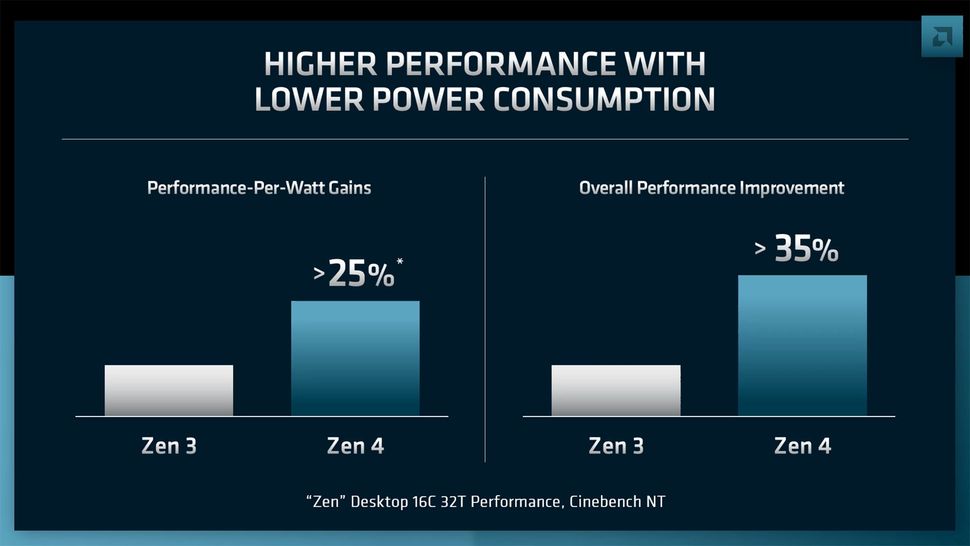What exactly are the bars here supposed to represent? They just chose two random sized bars and then put a number on top of one of them. It makes no sense to present this data in this format. AMD is absolutely not the only company to do things like this, and all of them need to stop it.
If 35% overall performance improvement is real, there is certainly nothing to complain about here. Though, I have the feeling that will only be the case if you limit yourself to 32 thread capable applications. The real world performance which rarely loads that many threads is going to be lower. If they can hit 25% on average with the 8 core version that will still be great, and easily something worth upgrading to.


